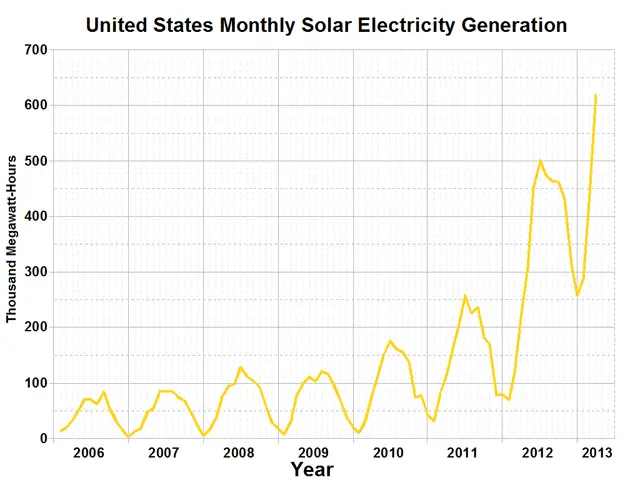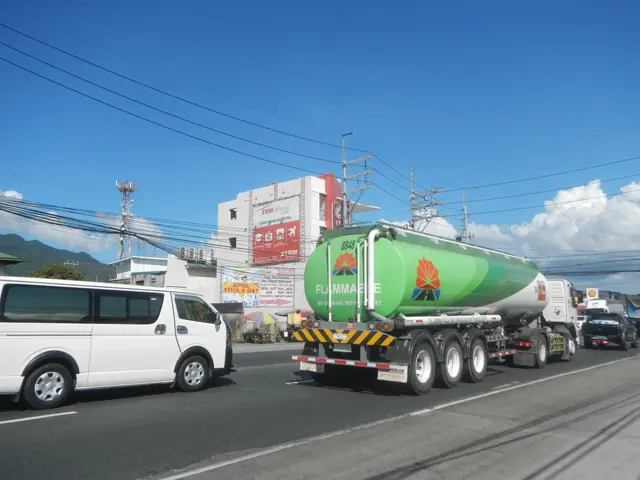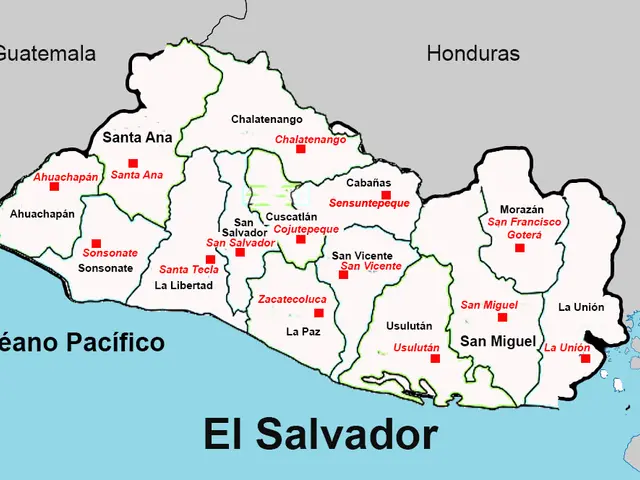Bavaria's Lead in Geothermal Energy Under Threat
There's a growing concern among the Greens that Bavaria could be losing its lead in geothermal energy usage to other federal states. This fear arises from the 'Champion Deep Geothermal Energy' award given to Mecklenburg-Vorpommern, which significantly surpassed Bavaria in deep geothermal energy capacity.
The German Geothermal Energy Association bestowed this award upon the state with the largest increase in installed capacity in deep geothermal energy and the highest installed capacity per inhabitant. Mecklenburg-Western Pomerania witnessed a substantial leap in installed capacity – more than doubling its previous year's figures. Unfortunately, Bavaria didn't increase its capacity at all, resulting in a zero rating for this category. Nevertheless, Bavaria continued to lead when it came to installed capacity per capita, boasting a value of 0.029 KW/inhabitant, contrasted with Mecklenburg-Western Pomerania's 0.0073 KW/inhabitant.
These accolades are not new for Bavaria. Most recently, Minister President Markus Söder (CSU) received this award in 2021. However, the Greens have been vocal critics of the state government's inaction in promoting geothermal energy. Despite setting aside 7.5 million euros for geothermal energy in the state budget, the Greens argue that this is inadequate for even a single borehole.
According to Martin Stümpfig, energy policy spokesman for the state parliamentary group, the state government's lukewarm energy policy is causing Bavaria to lag behind even in areas with favorable starting conditions. Additionally, Stümpfig has expressed dissatisfaction with the coalition agreement's inclusion of windy declarations of intent for geothermal energy without any concrete promises for increased investment. He further emphasized the need for a guarantee program to account for drilling risks and a separate heating network program to stimulate momentum in geothermal energy.
Enrichment Insights
To maintain and strengthen Bavaria's position in geothermal energy usage, various initiatives could be undertaken, drawing inspiration from Mecklenburg-Vorpommern and other successful federal states:
- Streamlining permit procedures, through amendments to the Federal Mining Act, could expedite geothermal projects and significantly reduce the time needed to obtain approvals.
- Financial incentives, such as conditionally repayable grants, can mitigate exploration risks for geothermal projects. This incentivizes investors by ensuring grant repayment based on actual heat output.
- Developing geothermal master plans can establish clear objectives and strategies for promoting geothermal energy, aiming to meet significant heating needs with this renewable source by 2045.
- Investing in advanced drilling technologies and geothermal power plant technology could improve project efficiency and profitability, lowering investor risk.
- Enhancing public acceptance and support for geothermal projects through transparent communication and mitigation strategies can help address concerns about environmental impact.
- Collaboration with other federal states to share best practices, expertise, and resources can drive the adoption of geothermal energy across different regions.
- Upgrading the grid infrastructure can enable connection between decentralized energy producers and users, enabling geothermal energy to become a more integral part of Germany's energy landscape.
- Conducting research and development initiatives at institutions like the Fraunhofer Institute for Solar Energy Systems (ISE) can help develop more efficient and cost-effective geothermal technologies.
By implementing these measures, Bavaria can maintain and even improve its position in geothermal energy usage while fostering increased investment and widespread adoption of this renewable energy source in Germany.








